The Summit of the Future and Its Pact
Politicians don't want to listen and the public is trained not to
STOP PRESS: Latest update from Jacob Nordangard
“The theory of anthropogenic global warming was conceived in the late 1800s, when the Swedish chemist and physicist Svante Arrhenius (1859–1927) presented his hypothesis that a doubling of carbon dioxide concentrations in the atmosphere would lead to a global increase in temperature of 5–6 degrees Celsius.
Unlike leading advocates of later decades, however, Arrhenius felt that this warming would be a good thing as it would help avoid a new Ice Age, and benefit vegetation and crop yield. At this time, there was very little interest in carbon dioxide emissions within the scientific community”.1
From Rockefeller: Controlling the Game by Jacob Nordangard
Something that may or may not excite old Svante is that he is a relative and may even be the great, great Grandfather of Greta Thunberg. Some of you know Greta as a great environmental champion. Informed people know her as the the star of a Swedish tech company’s marketing campaign in 2015 titled “We Don’t Have Time”.
“Our goal is to become among the biggest players on the internet.” — Ingmar Rentzhog, We Don’t Have Time, December 22, 2017, Nordic Business Insider 2
Two excellent videos on the United Nations’ “Pact for the Future” by Professor Jacob Nordangard3 can be found at the bottom of this article. The first deals directly with the PACT and its implications. The second explains the history of the Climate Cult underpinning it and details the people and organisations that are its drivers.
After providing some current context, I will turn matters over to Jacob.
You’re not going to talk about conspiracy theories, are you?
Last Saturday, I spent the day on a pre-polling station4 handing out how-to-vote leaflets for a local candidate as part of the New South Wales Council elections. I shared the space with Labor and Green party aspirants and their supporters.
At these events, there is much standing around waiting for prey. Good manners demand small talk because engaging in politically partisan argument with fellow predators is considered rude.
The Green and Labor members held sharply divergent views with each other on how close we are to environmental annihilation. Some thought the end could come any day now. Others gave us a year or two. A strange dilation on Trump’s threat to democracy also excessively energised their activist minds.
Meanwhile, our government has some very big plans and I thought these politically active people might like to discuss them. Yet, any attempt to broaden the discussion or even the gentlest hint that warned them I was about to challenge their certainties led them to caution me:
“You’re not going to talk about conspiracy theories, ARE YOU?”
So there was no point in mentioning the United Nations (UN). For them there was a tight cognitive coupling between any criticism of this caring organisation and people who chase rabbits down holes. Similarly, any questioning of man-made climate change justified their withdrawal from further discussion with a moron.
This is despite the messages on their clothing and on their political leaflets that seemed to invite engagement. For this we must give credit to media and government control over vital parts of public debate. The results of years of stroking and rewarding conformity has produced these results
I was determined to, at least, introduce people to this subject. Framing was going to be important so in explaining “The Summit of the Future” (SOFT), I was careful to make no mention of the UN early in our exchanges.
Instead, I shared that Australia’s Minister for Foreign Affairs, Penelope Ying-Yen Wong, has her ticket booked for a trip to New York on 22nd September. “Where do you think she might be going?", I asked.
With their interest partially piqued, I hammered home that Penny is off to sign us up to “THE PACT FOR THE FUTURE” 5. Not to debate it, report on it or explain it but to sign it. Of course, they had not heard of it. The conversation then trailed off with their promise to look it up but they probably won’t. A person who knows the truth has no need of curiosity.
What is this PACT?
A central purpose of this PACT is to draw governments into a common framework for international governance as part of what it calls a global compact. This appears to be a critical last phase in the Environment, Social, Governance (ESG) trap being set for us.
The G for Governance will set in place the rules that underpin this international PACT which will increasingly be reflected in government and corporate regulations and practices.
The related Pact for the Future document contain 88 guidelines and 59 actions. This first guideline is typical of its authors’ humble ambitions. They are central to achieving the UN’s Sustainable Goals which are a little behind schedule at the present.
GUIDELINE ONE
1. We, the Heads of State and Government, representing the peoples of the world, have gathered at United Nations Headquarters to protect the needs and interests of present and future generations through the actions in this Pact for the Future.
Note that term protect. Increasingly, government is being cast as our protector and now all the governments of the world are coming to together to protect all of us. In order to achieve this, some of your rights and hopes may need to be whittled down. If you care about others, you won’t mind.
Imminent dangers demand international agreement on the proposed actions contained in the PACT. Much like the International Health Regulations Amendments debate earlier this year, it is about setting up protocols around pre-emptive action that will allow technocrats to take charge in the event of a crisis.
This will require our governments hand over their authority, something which the Australian Government appears keen to do. It can be as a result of a predicted possible crisis, a predicted crisis, a perceived crisis or a crisis. These will be confirmed by modelling.
Their Common Agenda
Ever helpful, the UN has an idea of what we should be looking out for:
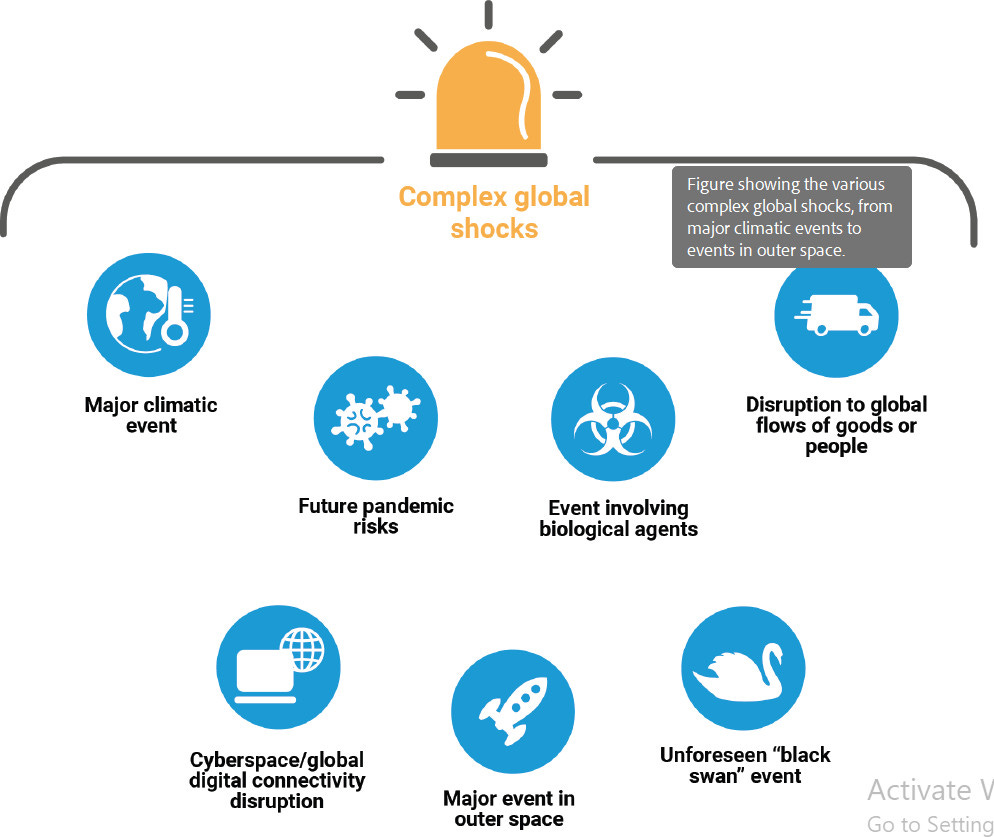
Background to the PACT is found within its Our Common Agenda Policy Briefs. 6
The PACT contains many notable proposals and I have pulled out just a few for comment. Guideline 46, in particular, stood out to me:
46. We must renew trust in global institutions by making them more representative of, and responsive to, today’s world and more effective at delivering on the commitments that we have made to one another and our people".
There is a trick in this. Can you see it? The term “WE” is heavily represented in the PACT and appears to represent the governments of the world or at least those that sign up. “WE” wants to improve trust in global institutions in order to make them more responsive to “today’s world”. I am sure “today’s world” will be ecstatic but what does this mean for you and me?
”WE” also wants to be more effective in delivering on commitments “WE have made” to “one another”. One another appears to be this ”WE” again. And “our people” might include us and it might not.
Note the United Nations has already made these commitments. If they have been made to you and me, do we know what they are? Do we want them? Do you remember being consulted about them? Do you remember any Australian politician raising this Pact with you as one of “their people”?
5. We reiterate that states are strongly urged to refrain from promulgating and applying unilateral economic measures not in accordance with international law and the Charter of the United Nations that impede the full achievement of economic and social development, particularly in developing countries.
This appears to be a fine example of old-fashioned British colonialism. The UN will tell governments what they can produce and with whom they can trade. It also seems to presage redistribution of wealth between countries. If these powers are given away by national governments, what possible point can there be in voting?
27(b) Pursue a world free from chemical and biological weapons and ensure that those responsible for any use of these weapons are identified and held accountable.
We have just experienced the implementation of a biological weapons program that had a UN agency, The World Health Organisation (WHO), right at the centre of it. Should we now expect the same organisations to protect us?
29(b) Ensure that critical infrastructure supporting the delivery of essential public services and required for the functioning of society is never intentionally damaged or impaired by malicious information and communications technology activity, from both State and non-State actors.
The document: “United Nations Global Principles For Information Integrity”7 informs the UN’s plans to achieve Information Integrity and the short video above celebrates the release of the related document.
One of the more interesting moments in the video is when Melissa Fuller, UN Under-Secretary-General for Global Communications, talks about influencing public debate and the problems the UN has with the Meta algorithm in getting its message across.
There is no doubt about the vagaries of Sustainable Development Goals, Their Common Agenda and the PACT but public understanding of them is just as Melissa and her friends like it. What the UN wants to convey is blunt messages like Climate Change bad and vaccines good. They don’t want to introduce any more subtlety than that.
This is a favourite from Principles for Information Integrity:
”Advertisers can benefit the information ecosystem in a way that both strengthens information integrity and makes good business sense”.
I am sure advertisers are desperately keen to clean up the “information ecosystem” but when have advertisers been interested in integrity?
In another section they discuss:
”Establish, publicize and enforce clear and robust policies on advertising and the monetization of content”.
Denying monetisation is how people speaking truth were cut down during the Covid debate. There is more to discuss here and people who are interested should also look at: Our Common Agenda Policy Brief 8 “Information Integrity on Digital Platforms” 8
I will get out of the way and hand things on to Jacob Nordangard but just before I do, one more observation.
Who decided families don’t matter any more?
Throughout these documents we hear about the importance of equity for women, older persons, children, youth, persons with disabilities, Indigenous Peoples, refugees and stateless people, LGBTIQ+ people and ethnic or religious minority groups.
What we don’t hear is anything about the units that traditionally connected these people such as families. This is an astonishing omission if you are new to this subject. It is not if you are familiar with the UN’s emphasis and purpose.
WORD COUNT in the PACT documents tells us something about emphasis:
Gender also appear 27 times.
There’s also A Children’s Pact for the Future 9too where we learn climate financing must be child and gender-responsive. This is a Save the Children initiative which is a UN affiliate.
After listening to what Jacob has to say, you might be inclined to contact one of your local representatives to tell them what you think of their plans. I intend to send this article. As usual, I expect a warm and encouraging response.
When you are ready, Jacob.





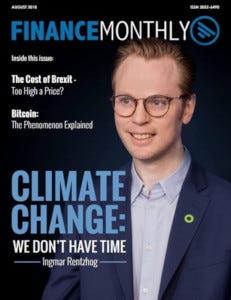
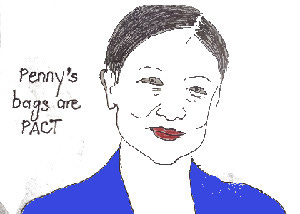
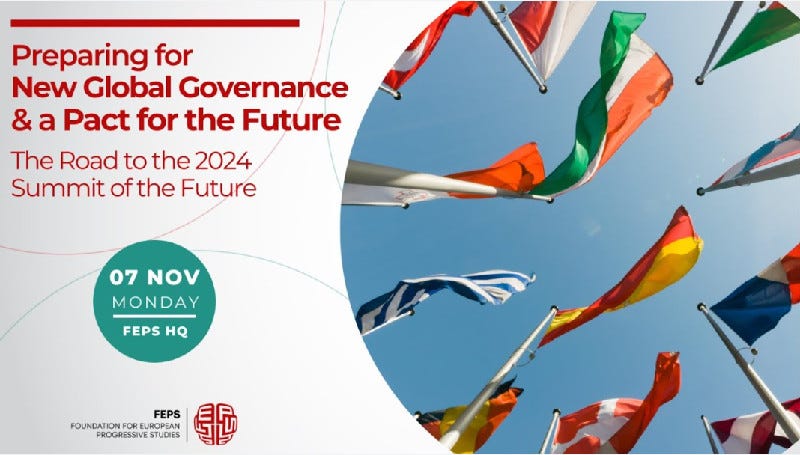
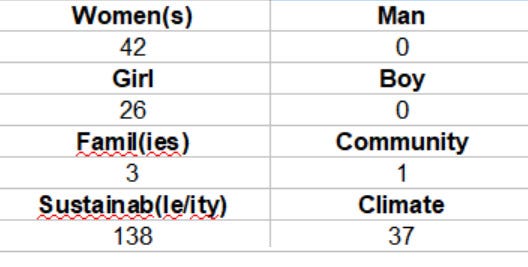
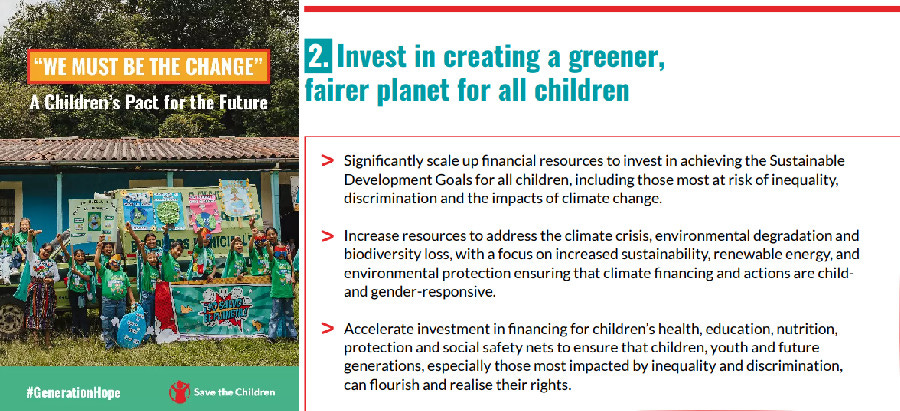
Micheal Synder (michaeltsnyder@substack.com) is a long time doomer and people do poke fun at him...confess to having done so myself..... but he's essentially on the money with the majority of his comments, he loves his country & his heart is in the right place. And his doom is starting to look scarily real..
His latest blog, just posted, basically repeats what you've said above. We're being snowed.
Here's the thing: I feel I'm reasonably up to date with what's going on politically both locally & overseas. I'm not fanatical but just would rather spend the hour before my glass of warm milk & 8pm beddy-byes on the net looking at something useful than watching MSM dross (unless it's a re-run of MASH, of course) BUT this is the first I've heard about this Summit - that our Penny is running off there to sign us up.
Who will we blame? No-one but ourselves and we are about to get, good & hard, pretty much what we deserve for being disinterested, dumb, detached & in denial of the reality being put in place, piece by piece around us. Think fences; bars; prison.
Like inmates of Super Max or Long Bay, we'll have time enough to reappraise & regret. But unlike them, when the well-oiled iron gates finally clang closed behind us and our gate-keepers man the digital watch towers, there'll be no release date, probably any time this century...or maybe the next.
We do get what we deserve. Maybe there really are 'no accidents in the Universe'
I was going to comment on local elections but, sorry, I'm all metaphored out... :)
Basically, it IS a conspiracy.